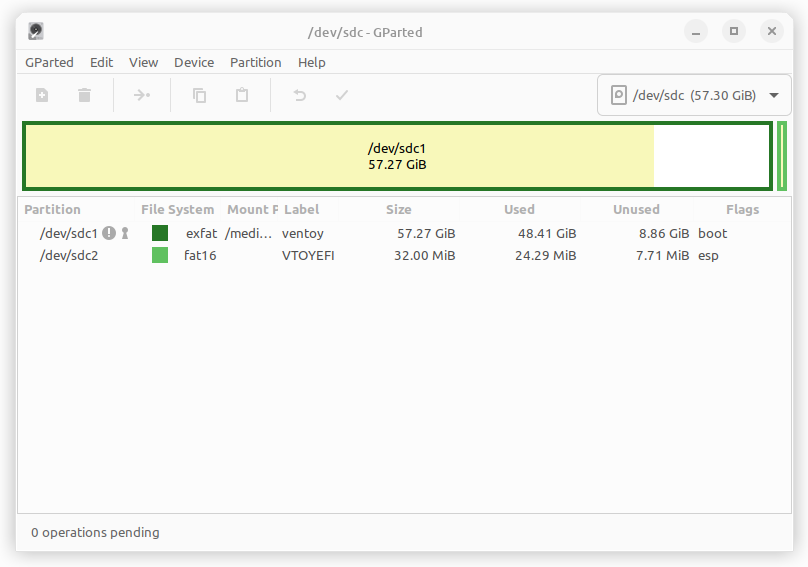Filesystem
Better Filesystem Support
Asmi includes user-space tools for all common filesystem formats. You can connect and access storage devices that formatted with filesystems like EXFAT or HFS+ without installing any additional packages.
GParted and GNOME Disks are included for disk partitioning and formatting.

NTFS3 driver by default
The in-kernel ntfs3 driver is used by default for mounting NTFS drives,
instead of using the fuse-based ntfs-3g driver.
NTFS3
is an in-kernel driver and has better performance compared to
ntfs-3g which runs in user-space.
BTRFS compression by default
Most Linux distributions mount BTRFS devices without compression.
Compression, if needed, has to be enabled manually by adding
an entry to the /etc/fstab file,
or by specifying the compress=none option when running the mount command.
Asmi will mount BTRFS devices with Zstd compression enabled by default.
Compression can be disabled manually if needed by adding
an entry to the /etc/fstab file,
or by specifying the compress=none option when running the mount command.
Accurate progress for writing files to USB devices

On most Linux distributions, when a file is copied to a USB drive, the progress window displayed by the file manager will show that the copy is complete even though the file is still being written to the USB device. Disconnecting the drive will corrupt the file. The drive needs to be ejected in order to finish writing the data and to “safely remove” the drive.
Asmi will show you the actual progress when you copy files to a USB. Once the file manager shows that the file has been copied, you can disconnect the drive without any issues.